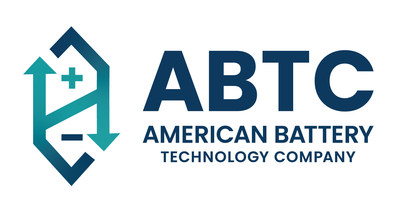American Battery Technology Company Announces Commercial Transaction for Bulk Purchase of Recycled Black Mass Material by Domestic Strategic Customer
American Battery Technology Company (NASDAQ: ABAT) has achieved a significant milestone by entering into a binding purchase agreement for its recycled black mass material with a domestic strategic customer. This material, generated from the company's lithium-ion battery recycling facility, contains valuable metals like lithium, nickel, and cobalt. The facility, operational since October 2023, uses a unique de-manufacturing and hydrometallurgical process to recycle batteries and manufacturing scrap. Initially, ABTC considered marketing its black mass globally but decided to prioritize domestic sales to contribute to a North American circular battery metals supply chain. This strategy aims to strengthen local supply chains and avoid dependency on Asian markets.
- ABTC has entered into a binding purchase agreement for its recycled black mass material with a domestic strategic customer.
- The recycling facility has been operational since October 2023, utilizing a unique de-manufacturing and selective hydrometallurgical process.
- The facility can process various sizes, shapes, and chemistries of lithium-ion batteries and manufacturing scrap.
- The decision to sell recycled materials domestically supports the establishment of a North American circular battery metals supply chain.
- The second phase of the recycling system is still being implemented, indicating incomplete integration.
Insights
American Battery Technology Company's announcement of a binding purchase agreement for its recycled black mass material signals a significant commercial milestone. This transaction not only reflects the company's ability to produce high-quality recycled materials but also demonstrates its capacity to secure strategic customers domestically. Such achievements are likely to enhance investor confidence in ABAT's operational capabilities and long-term viability.
From a financial perspective, this development could lead to increased
In the short term, investors might see a boost in stock price due to the positive market sentiment around the news. Long-term implications include potential growth in market share within the North American battery recycling industry and further opportunities for expansion as sustainability and circular economy practices gain traction globally.
ABTC's decision to focus on the North American battery supply chain aligns with current market trends emphasizing sustainability and reducing reliance on foreign supply chains. The commitment to a closed-loop circular economy resonates well with regulatory and industry pushes toward environmental responsibility and resource efficiency. This strategic move could place ABTC in a favorable position as a key player within the domestic supply chain for critical battery materials.
This decision also differentiates ABTC from competitors who might still rely heavily on international markets, particularly the Asian refining market. By securing domestic customers, ABTC may enjoy competitive advantages such as shorter supply chains, reduced transportation costs and quicker turnaround times, which can be important in the rapidly evolving battery technology sector.
Furthermore, the ability to process various feedstock form factors and chemistries highlights the versatility and robustness of ABTC's recycling technology, which can attract a diverse range of customers with different recycling needs. This could also lead to potential collaborations and partnerships within the North American sector, further solidifying ABTC's market position.
The technological aspect of ABTC's recycling facility, notably its first-of-kind integrated recycling processes, is noteworthy. The strategic de-manufacturing approach, coupled with a targeted selective hydrometallurgical process, allows ABTC to process a wide variety of lithium-ion batteries and manufacturing scrap. This technological flexibility is important as the industry moves towards more diverse and complex battery chemistries.
Moreover, the phased recycling process, which produces intermediate materials like black mass and then further refines them into battery-grade components, demonstrates a high level of technological sophistication. This not only enhances the quality and purity of the recycled materials but also aligns with the industry's push towards higher efficiency and sustainability in battery production.
Looking ahead, ABTC's technological advancements could set industry standards and potentially lead to licensing opportunities or joint ventures with other companies looking to adopt similar technologies. Additionally, these innovations can increase operational efficiency, reduce waste and lower production costs, making ABTC's products more competitive in the market.
- American Battery Technology Company (ABTC) achieves major commercial milestone for its internally-developed, first-of-kind, commercial-scale battery recycling facility by entering into a binding purchase agreement for accumulated volume of its recycled black mass material to a domestic strategic customer
- Ensuring recycled black mass feeds the North American circular battery metals supply chain, as opposed to being sold to the Asian refining market, ABTC strategically shifts to direct sale of its products, as opposed to working indirectly through marketing agents
- Black mass material recycled from lithium-ion batteries contains metals such as lithium, nickel, and cobalt that can be used in the manufacturing of new lithium-ion batteries needed to power consumer electronics, stationary grid storage systems, and electric vehicles
American Battery Technology Company began operations of its commercial lithium-ion battery recycling plant in October 2023. The ABTC recycling facility utilizes its first-of-kind integrated set of recycling processes based on a strategic de-manufacturing approach that utilizes a deconstruction process combined with a targeted selective hydrometallurgical process. This system is agnostic to feedstock form factors and can process lithium-ion batteries and manufacturing scrap of a variety of sizes and shapes, and with a wide range of internal chemistries. The first phase of the recycling process produces recycled products that include copper, aluminum, steel, a lithium intermediate, and a black mass intermediate material, and the integrated second phase further refines these materials into battery grade nickel sulfate, cobalt sulfate, manganese sulfate, and lithium hydroxide. The second phase of this integrated recycling system is currently being implemented.
The company previously considered marketing its black mass intermediate material throughout the world, but the company's strategic priority is to sell its recycled products domestically to ensure these products facilitate the establishment of a North American closed-loop circular battery metals supply chain.
"We are proud to have manufactured bulk quantities of high nickel and cobalt content recycled black mass material at our commercial-scale, lithium-ion battery recycling facility," stated ABTC CEO Ryan Melsert. "In accordance with our corporate principles, we strongly prefer to sell our recycled materials into the North American battery supply chain in order to facilitate the establishment of closed-loop domestic operations, as opposed to exporting these critical minerals abroad. We also are proud to have established strong relationships with domestic customers, that allow us to sell these recycled products directly as opposed to indirectly through brokers."
Bringing first-of-kind technologies to market, ABTC's battery recycling and primary battery metals commercialization efforts support the buildout of a domestically-sourced battery metals circular supply chain.
About American Battery Technology Company
American Battery Technology Company (ABTC), headquartered in
Forward-Looking Statements
This press release contains "forward-looking statements" within the meaning of the safe harbor provisions of the
![]() View original content to download multimedia:https://www.prnewswire.com/news-releases/american-battery-technology-company-announces-commercial-transaction-for-bulk-purchase-of-recycled-black-mass-material-by-domestic-strategic-customer-302194097.html
View original content to download multimedia:https://www.prnewswire.com/news-releases/american-battery-technology-company-announces-commercial-transaction-for-bulk-purchase-of-recycled-black-mass-material-by-domestic-strategic-customer-302194097.html
SOURCE American Battery Technology Company








